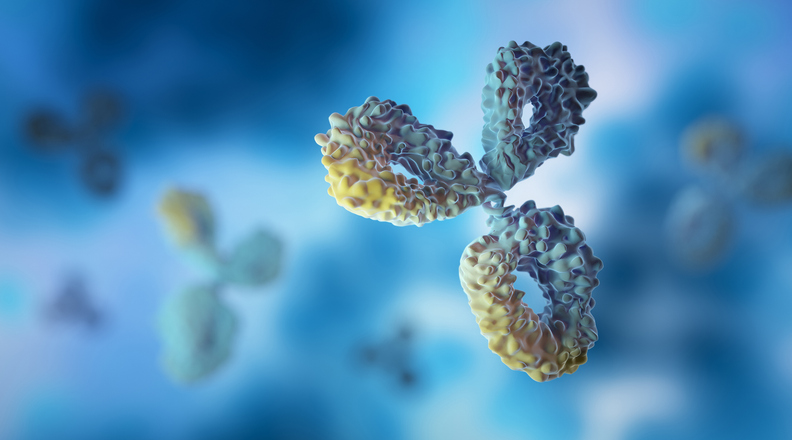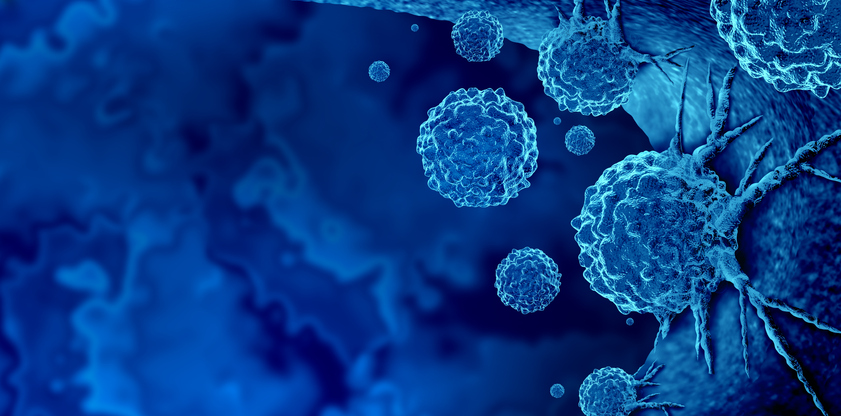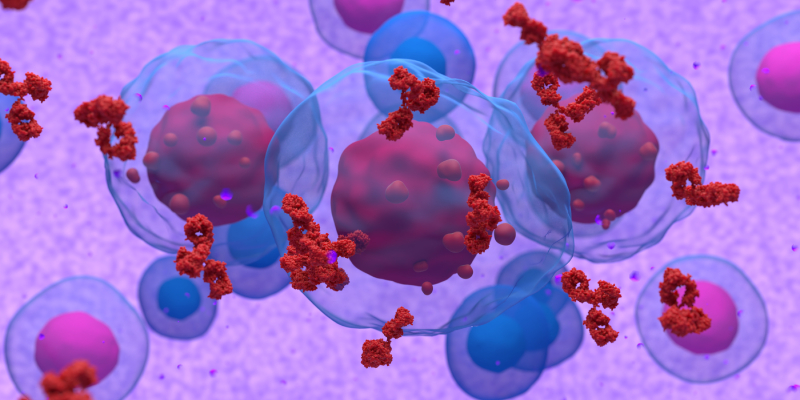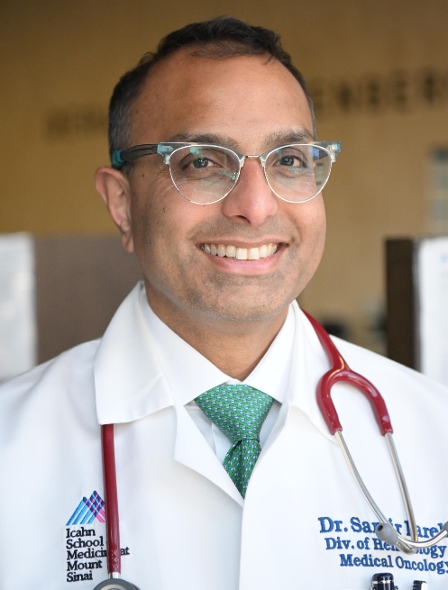
Allogeneic chimeric antigen receptor (CAR) T-cell therapy led to “significant and durable responses” in patients with multiple myeloma (MM), according to investigators of the phase I UNIVERSAL trial.
Sham Mailankody, MBBS, of the Memorial Sloan Kettering Cancer Center, and colleagues conducted the trial and presented its results at the 2022 American Society of Hematology Annual Meeting.
They evaluated ALLO-715, a genetically modified anti-B-cell maturation antigen (BCMA) CAR-T therapy that disrupts the T-cell receptor alpha constant and the CD52 genes “to eliminate the risk of graft-versus-host disease and permit the use of ALLO-647, an anti-CD52 monoclonal antibody, for selective and transitory host lymphodepletion,” according to Dr. Mailankody and colleagues.
The open-label trial included 53 adults with relapsed/refractory MM who received at least three prior lines of therapy, including a proteasome inhibitor, an immunomodulator, and an anti-CD38 monoclonal antibody. The patients underwent lymphodepletion before receiving ALLO-715 at one of four dose levels.
The researchers evaluated the following dose levels in a 3+3 dose-escalation design: dose level one, 40 x 106 CAR+ T-cells; dose level two, 160 x 106 CAR+ T-cells; dose level three, 320 x 106 CAR+ T-cells; and dose level four, 480 x 106 CAR+ T-cells. The patients received varied doses and schedules of lymphodepletion involving ALLO-647 with fludarabine and cyclophosphamide. Nearly all (98%) patients who underwent lymphodepletion received ALLO-715 by the data cut-off point.
The researchers chose two of the dose level three cohorts for expansion and conducted lymphodepletion with fludarabine and cyclophosphamide plus ALLO-647 39 mg or 60 mg in the cohorts. Dose level three was considered the “most active cell dose,” according to Dr. Mailankody and colleagues.
The overall response rate (ORR) was 64% in patients receiving dose level three with fludarabine and cyclophosphamide plus ALLO-647 39 mg (n=11), while 55% achieved a very good partial response or better, and 27% achieved a complete response (CR) or stringent CR. The ORR was 80% in patients receiving dose level three with fludarabine and cyclophosphamide plus ALLO-647 60 mg, while 50% achieved a very good partial response or better, and 20% achieved a CR or stringent CR.
Of the 15 patients who responded, nine had responses at 14 days, with two patients receiving ALLO-647 39 mg still having an ongoing response at 12 months. Of the patients who received ALLO-647 at 90 mg, three patients had ongoing responses at 12, 19, and 20 months. Most patients (91%) who were assessed for minimal residual disease (MRD) and had a very good partial response or better were MRD negative.
The researchers did not report any incidences of graft-versus-host disease or dose-limiting toxicities. However, cytokine release syndrome occurred in 52% of patients and “potential events of neurotoxicity” were identified in 11%, according to Dr. Mailankody and colleagues. Grade 3 or higher adverse events included neutropenia, anemia, thrombocytopenia, and lymphopenia. More than half (56%) of patients had infections, which were grade 3 or higher in 29%.
“UNIVERSAL demonstrates significant and durable responses from allogeneic CAR-T therapy. ALLO-715 [dose level three] with [fludarabine and cyclophosphamide plus ALLO-647 39 mg or ALLO-647 60 mg] was associated with clinically meaningful efficacy, including [very good partial response or better] rates of 55% and 50% without requiring leukapheresis or bridging therapy,” Dr. Mailankody and colleagues concluded. “Ninety-eight percent of [patients] receiving [lymphodepletion] received ALLO-715 with 100% of product manufactured and released per product specifications. [Fludarabine and cyclophosphamide plus ALLO-647] induces a deep and durable window of lymphocyte depletion allowing CAR T-cell expansion.”
Reference
Mailankody S, Matous JV, Liedtke M, et al. Universal updated phase 1 data highlights role of allogeneic anti-BCMA ALLO-715 therapy for relapsed/refractory multiple myeloma. Abstract #2019. Presented at the 64th ASH Annual Meeting and Exposition; December 10-13, 2022; New Orleans, Louisiana.






 © 2025 Mashup Media, LLC, a Formedics Property. All Rights Reserved.
© 2025 Mashup Media, LLC, a Formedics Property. All Rights Reserved.